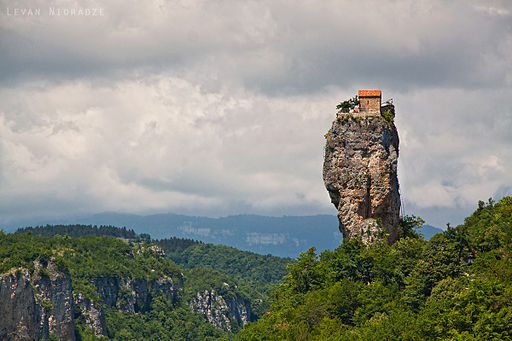Like most Western Zenners, I come to this practice from a life of emotional trauma. More than once, I've stood at that point where you realise, after a long, desperate march, that the cause is lost; there's no going back, or even holding on. You can only let go, and let karma happen.
What comes next, if you practice attentively, is insight and growth, but that instant of acceptance, when you see it's all been delusion, is sacred. (If only in hindsight.)
ELO's Getting To The Point expresses that state perfectly. Founder Jeff Lynne's goal for his appropriately-named Electric Light Orchestra was to bring classical music sensibilities to pop – which is why the execution here is so reminiscent of Beethoven. His song texts, tolerated largely to carry the melody, were correspondingly fatuous for the most part. But this one reads like Japanese poetry, riding a dramatic score to devastating effect. Throw in a masterful flourish of wailing sax, so emblematic of the power balladeers (Bruce Springsteen, Billy Joel, Mark Knopfler, Gerry Rafferty, Don Henley) of the late 70s and 80s, and you've got ELO's most moving song.
Which is either ironic or prescient, given that, in eerie echo of another revolutionary British band, it was also the last single they ever released. Sadly, an untimely distribution glitch prevented most people from hearing it, leaving one of pop music's most seminal groups to slip unmemorialised over the horizon.
Until today. Give it a spin.
GETTING TO THE POINT
by Jeff Lynne
It's out of control
Out of control
And there's nothing I can do now
Out of control
Out of control
Spinning softly through the blue now
And look beyond these walls
As the meaning starts to dawn
It's getting to the point
Getting to the point
It's out of control
Nothing I can do
Like a fire that keeps on burning
And nobody knows
What I'm going through
And the thoughts just keep returning
And all you had to say
Was that you were gonna stay
It's getting to the point
Getting to the point
It's getting to the point
It's getting to the point
Where nobody can stop it now
It's getting to the point
Of no return
And all that I can do
Is stand and watch it now
Watch it burn, burn, burn
It's getting to the point
Where reasons are forgotten
It's getting to the point
Where no one knows
And all that I can do
Is say I'm sorry
But that's the way it goes
Getting to the point
Forever is a long way
Forever takes your breath away
I'd like to talk about it
Try to understand
It's getting to the point
Getting to the point
Getting to the point
It's getting to the point
Where nobody can stop it now
It's getting to the point
Of no return
And all that I can do
Is stand and watch it now
Watch it burn, burn, burn
It's getting to the point
Where reasons are forgotten
It's getting to the point
Where no one knows
And all that I can do
Is say I'm sorry
That's the way it goes
It's getting to the point
Getting to the point







